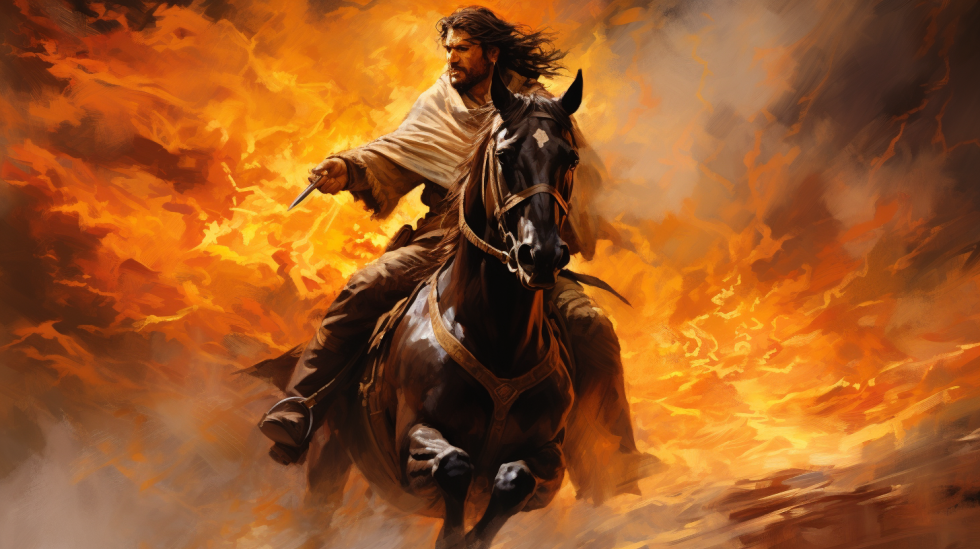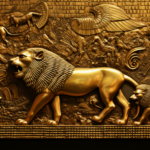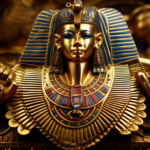The legend of El Dorado, the mythical city of gold, has captured the imaginations of adventurers, explorers, and dreamers for centuries. This enduring tale of untold wealth and hidden treasure has inspired countless expeditions and fueled the human desire for riches and glory. In this exploration of “The El Dorado Legend,” we will delve into the origins of the myth, its impact on history, and the enduring allure of this gilded dream.

The Birth of El Dorado
The origins of the El Dorado legend can be traced back to the indigenous peoples of South America, particularly the Muisca tribe of present-day Colombia. The myth of El Dorado, which means “the gilded one” in Spanish, centered around the ritual of a new leader’s ascension to power.
1. The Legend’s Origins: The Muisca believed that their leader, known as the “zipa,” would undergo a sacred ceremony at Lake Guatavita. During this ceremony, the zipa would be covered in gold dust and various precious offerings would be cast into the lake as offerings to the gods. The event symbolized the leader’s divine right to rule and his commitment to the welfare of his people.
2. European Encounters: Spanish conquistadors, who arrived in South America in the early 16th century, heard stories of this gilded ceremony. Intrigued by the tales of a city made entirely of gold, they began to refer to it as “El Dorado.”
3. Conquistador Expeditions: The allure of El Dorado led many Spanish conquistadors, including Gonzalo Pizarro and Francisco Orellana, to embark on expeditions in search of the fabled city. These journeys took them through treacherous jungles, across vast rivers, and into unknown territories.
The Search for El Dorado
The quest for El Dorado became an obsession for explorers, conquistadors, and adventurers. It was a quest driven by greed, ambition, and the tantalizing promise of unimaginable wealth. Here are some key expeditions and figures associated with the search for El Dorado:
1. Hernán Cortés (1519): The famous conquistador Hernán Cortés, known for his conquest of the Aztec Empire, heard rumors of El Dorado during his time in Mexico. Though he did not embark on a dedicated expedition, the legend of El Dorado fueled his ambitions.
2. Gonzalo Pizarro (1541-1542): Gonzalo Pizarro, a half-brother of Francisco Pizarro, led an ill-fated expedition in search of El Dorado. His journey took him through the dense Amazon rainforest, but the harsh conditions and lack of supplies led to the death of many of his men.
3. Francisco Orellana (1541-1542): Francisco Orellana, a member of Gonzalo Pizarro’s expedition, split from the main group and continued his journey down the Amazon River. He eventually reached the Atlantic Ocean, becoming the first European to traverse the length of the Amazon, but he found no trace of El Dorado.
4. Sir Walter Raleigh (1595): The English explorer Sir Walter Raleigh led an expedition to the region known as Guiana (now part of Venezuela and Guyana) in search of El Dorado. Although his journey did not yield the gilded city, he did encounter indigenous tribes and gathered valuable information about the region.
5. The Legend Lives On: Despite numerous expeditions and explorations, El Dorado remained elusive. The legend, however, continued to inspire adventurers and writers, contributing to the lore of the unattainable city of gold.
The Legacy of El Dorado
While the physical city of gold described in the El Dorado legend has never been found, its legacy lives on in various forms:
1. Literary and Cultural Influence: The legend of El Dorado has left an indelible mark on literature and popular culture. It has inspired countless books, poems, films, and artworks, including Edgar Allan Poe’s short story “The Gold-Bug” and the animated film “The Road to El Dorado.”
2. Metaphorical Significance: El Dorado has come to symbolize the pursuit of an unattainable and often illusory goal. It serves as a cautionary tale of the destructive power of greed and the consequences of relentless ambition.
3. Exploration and Colonization: The quest for El Dorado played a role in the exploration and colonization of the Americas. While it did not lead to the discovery of a city of gold, it spurred European interest in the New World and shaped the course of history.
4. Natural Wealth of the Americas: The Americas did indeed yield vast riches to the European explorers and colonizers, including vast quantities of gold and silver. These resources fueled the global economy and contributed to the rise of powerful empires.
5. Indigenous Peoples: The legend of El Dorado is intertwined with the history of indigenous peoples in the Americas. The arrival of European explorers and their quest for gold had profound and often devastating effects on native populations.
The Quest for El Dorado in Modern Times
The legend of El Dorado continues to capture the imagination of modern adventurers and treasure hunters. While the dream of a gilded city remains elusive, modern expeditions and discoveries offer new perspectives on the quest for El Dorado:
1. Scientific Exploration: In recent years, advances in technology and scientific exploration have shed new light on the landscapes associated with the El Dorado legend. Archaeologists and researchers have used remote sensing techniques, satellite imagery, and ground surveys to investigate areas where the fabled city may have been located.
2. Environmental Conservation: The regions of South America associated with the El Dorado legend are rich in biodiversity and natural resources. Efforts are underway to protect these fragile ecosystems from deforestation, mining, and other forms of environmental degradation.
3. Cultural Preservation: Indigenous communities in South America continue to preserve their rich cultural traditions and stories, including those related to the legend of El Dorado. These communities play a vital role in safeguarding their heritage and the environments they inhabit.
4. Tourism and Adventure: The allure of El Dorado has not waned, and many tourists and adventure seekers visit the regions associated with the legend. They explore the jungles, rivers, and landscapes in search of adventure and a connection to the past.
The Symbolism of El Dorado
Beyond its historical and cultural significance, El Dorado has become a symbol with multifaceted meanings:
1. Quest for Wealth: El Dorado represents the eternal human desire for wealth and riches. It serves as a reminder of the allure of treasure and the lengths to which people will go in pursuit of it.
2. Symbol of Ambition: The quest for El Dorado symbolizes the relentless ambition and determination that drives explorers and adventurers to venture into unknown territories, facing immense challenges and risks.
3. Cautionary Tale: El Dorado also stands as a cautionary tale, warning against the destructive power of greed and the negative consequences of the relentless pursuit of wealth at any cost.
4. Cultural and Literary Inspiration: The legend of El Dorado has inspired countless works of literature, art, and film. It continues to captivate the creative imagination and serves as a source of inspiration for storytellers and artists.
5. Exploration and Discovery: El Dorado’s legacy is intertwined with the history of exploration and discovery in the Americas. It reflects the impact of European exploration on indigenous cultures and the global exchange of goods and ideas.
Conclusion: The Enduring Quest
The legend of El Dorado, with its shimmering promises of gold and hidden treasures, remains one of the most enduring and captivating tales in human history. It has spurred countless expeditions, shaped the course of exploration and colonization, and left an indelible mark on literature and culture.
Yet, beyond the myth and the relentless pursuit of riches, the story of El Dorado serves as a poignant reminder of the complexities of human ambition. It underscores the importance of understanding the consequences of our actions, particularly in our interactions with the natural world and indigenous cultures.
As we continue to explore, discover, and seek meaning in the world around us, the legend of El Dorado endures as a symbol of our boundless curiosity, our unyielding spirit of adventure, and the ever-present quest for something more, something greater—whether it be a city of gold or the fulfillment of our deepest dreams and aspirations.
In the heart of this timeless legend, we find not just the glittering allure of gold but also the enduring human spirit—the spirit that propels us to venture into the unknown, to strive for the extraordinary, and to seek the treasures, both material and spiritual, that enrich our lives and define our journey through time.



